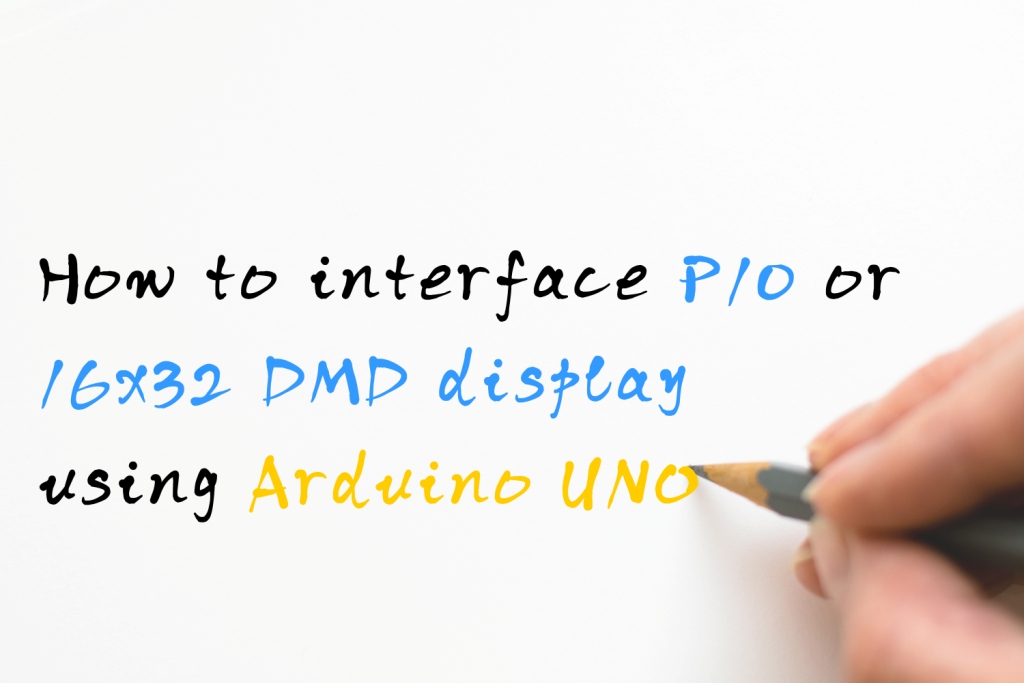Table of Contents
Introduction
Advertising is the most common and important thing for a product, service, or any feature you want to sell. The common way to advertise is to make banners, hoardings, paintings, etc. But now a day’s digital display is also getting popular to display advertisement, because of their durability, and customization feature. You can set text, display images and even you can play a video on the display. These boards are a little costly but due to their features, it’s gaining a place in the market. In this tutorial, we will interface a red 32×16 dot matrix display (DMD).
The size of the P10 display is 6 inches in height and 11 inches in width. The display contains a total of 512 LEDs. LED color varies according to your purchase. Here I am using a RED DMD display.
Using the P10 display you can build any size of display for your advertisement board. These display boards are IP65 waterproof.
Specification of P10 display:
- Brightness – up to 5000
- Maximum power consumption – 20watts
- IP65 waterproof.
- Pixel configuration – 10mm
P10 display pin descriptions:
- Pin 1(OE)- is the enable pin and is used to control the brightness of the panel.
- Pin2 (A) and Pin3 (B) are the two selection line to select from multiple rows.
- Pin8 (CLK), Pin10 (SCLK), and Pin12 (DATA): are the control pins of the shift register.
Hardware Requirements
Disclaimer: It may contains Amazon affiliate links. which means I can get a small commission on the sale. This might be your indirect help to me. Thank You 🙏Software Requirements
- Arduino IDE (You can download it from HERE)
- DMD Library
- TimerOne Library
Block Diagram

Circuit Diagram

Please follow the circuit diagram and the below table and build the circuit connection correctly. Power supply to P10 display should be given externally with an 5v 2Amp source.
Circuit Explanation
| P10 Display | Arduino UNO |
| PIN1 (OE) | D9 |
| PIN2 (A) and PIN3 (B) | D6 and D7 respectively |
| PIN8 (CLK) | D13 |
| PIN10 (SCLK) | D8 |
| PIN12 (DATA) | D11 |
Video Tutorial
Download Source Code
The code I am using here is the same code provided in the dem_code file in DMD library. So, do not confuse on my code to interface.
